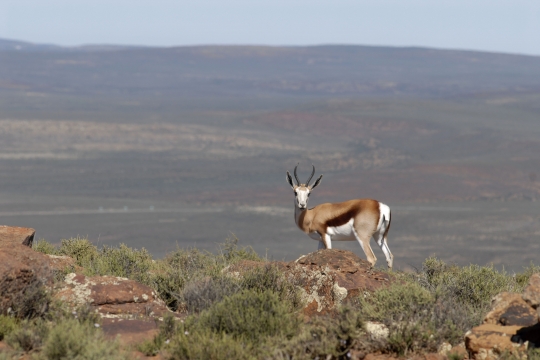When poorer rural families in Zimbabwe are able to collect bushmeat, it may allow them to increase their household income through selling the meat within their communities. This means that if policies help support communities’ access to wildlife, these can address poverty and decrease the inequality gap in these areas.
This is the finding of Herbert Ntuli, a research fellow at the University of Cape Town’s Environmental Policy Research Unit (EPRU). The EPRU is the South African centre of the Environment for Development (EfD) initiative.
As part of his doctoral research, under the supervision of EPRU associate professor Edwin Muchapondwa, Ntuli visited 30 different communities in the region of the Gonarezhou National Park, in Zimbabwe, in mid-2013.
Villagers living in close proximity to parks like this often use the natural veld to collect food such as bushmeat and plants, or will collect wood for timber or cooking, thatch for basket making, and fodder for their livestock.
‘We wanted to understand whether increased access to wildlife income will improve the livelihoods of poor rural communities living adjacent to protected areas. Will their use of wildlife make a significant contribution to a family’s income? And, if so, does this threaten the environment?’ Ntuli explains.
After interviewing people from 336 households during his field work, Ntuli found that the wealthier households consumed more wildlife resources than poorer households, but that poorer households were collecting more bushmeat to sell in order to support themselves financially.
‘Specifically, the poorest families tend to eat a lot of the less valuable environmental resources such as wild vegetables that they pick from the veld, while relatively wealthier families consumed more valuable products such as bushmeat.’
It soon became clear that poorer families are collecting bushmeat so that they can sell this within their communities and increase their income.
For communities living in more abundant wildlife hubs in the area, their income improved more than those living in areas where the biodiversity had dwindled.
This suggests that policies dealing with land reform, income generation and development need to consider boosting conservation efforts to sustain healthy wildlife populations and to empower poor households so that they can generate more wildlife-related income, while at the same time imposing restrictions on well-off households.
Ntuli hopes to present his findings at the ninth EfD conference in China later this year.
For more stories about Herbert Ntuli’s research around wildlife and community interactions in Zimbabwe, click here.
